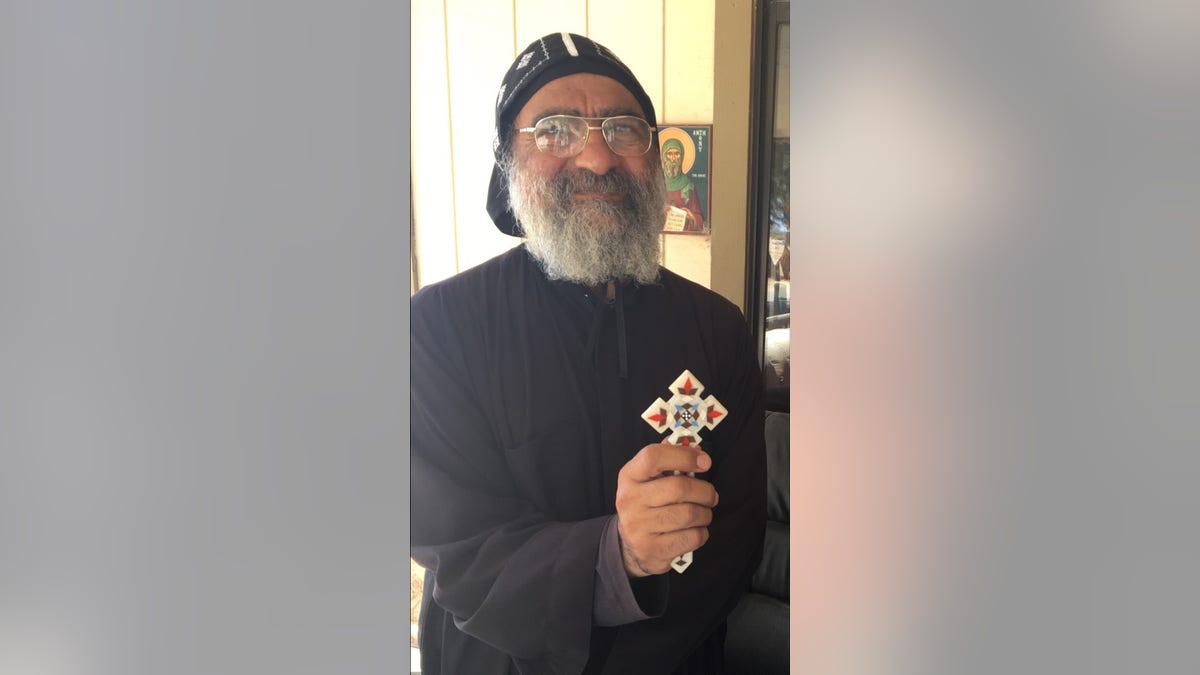
Father Mosa of the Saint Antony Eastern Orthodox Coptic Monastery, Calif. (Hollie McKay/FoxNews.com)
In the remote California desert – at the halfway point between Los Angeles and Las Vegas – dusts kicks up and curls the skyline, hovering above majestic iron gates and a towering cross. Behind it sprawl houses of worship, date trees and a flowing river reminiscent of a land far away.
It is the Saint Antony Eastern Orthodox Coptic Monastery. Inside, there is a kinship of monks and novices swinging censers of incense known as bakhoor while a large old-fashioned oven raises to life the warm holy bread. A gathering of devoted followers – women on one side with their heads sheathed in traditional white mantillas and the men on the other – are deeply drawn into prayer.
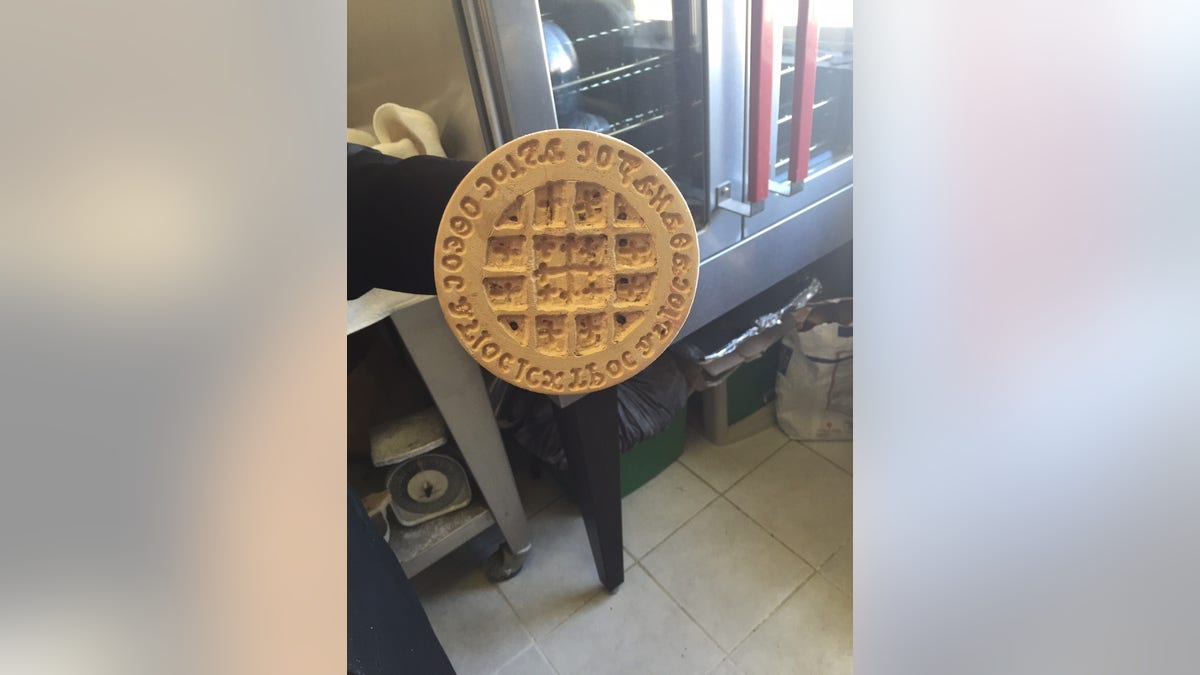
Imprinting the holy bread at the Saint Antony Eastern Orthodox Coptic Monastery, Calif. (Hollie McKay/FoxNews.com)
More often than not, they are praying for the survival of their fellow Christian Coptics facing persecution in their native of Egypt.
“The (Muslim) Brotherhood has returned to kill the Christians in Egypt,” the monastery’s Father Mosa told Fox News. “But the future is in the hands of Christ.”
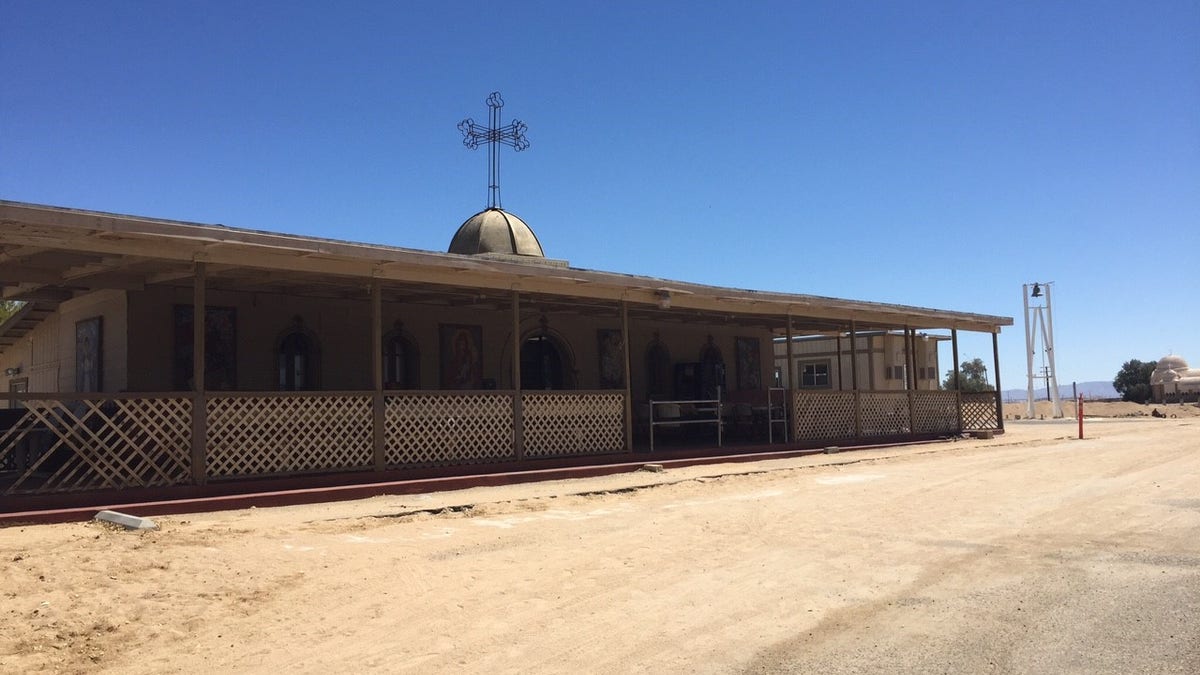
Saint Antony Eastern Orthodox Coptic Monastery, Calif. (Hollie McKay/FoxNews.com)
On Palm Sunday, the Christian commemoration for the day Jesus arrived in Jerusalem before his crucifixion, 44 people were murdered in attacks on two churches, orchestrated by brutal jihadist outfit ISIS. But this is just one of an endless string of onslaughts against the religious minority in Egypt – which makes up around 10 percent of the population.
The ousting of President Mohammed Morsi and the Muslim Brotherhood from power in 2013, replaced by Gen. Abdel-Fattah el-Sissi, had many Coptic’s hopeful for greater minority protections. Mosa is confident that the strongman president will go above and beyond to seek peace, but others are less optimistic.
“I suffered persecution and discrimination in Egypt and I have zero trust in Sissi. There is an unspoken tendency of the government to keep their eyes closed and just pretend to be unbiased,” said Terese Gobran, who sought asylum in the U.S a couple of years ago. “I chose to leave when a direct threat was more than probable, and I don’t intend to go back. The Coptic people will all be forced to flee. They need help and support.”
And Wahid Boctor, an Egyptian-American, recalled the way his brother in medical school was constantly harassed due to his faith, as officials “did not want Christians to graduate as doctors so that Muslim woman would not be exposed to them.”
“Every time I go back it is getting worse and worse,” he continued. “Christianity in Egypt and the Arab world will not last for long.”
According to Pew Research Center’s Forum on Religion and Public Life, Christians are not only the most persecuted religious group in the world – but persecution is the highest in the Middle East, the land where the religion and civilization all began.
PALM SUNDAY ATTACKS: 44 DEAD, MORE THAN 100 INJURED IN CHURCH BOMBINGS CARRIED OUT BY ISIS IN EGYPT
CHRISTIANITY IN IRAQ IS FINISHED, SAYS CANON ANDREW WHITE, 'VICAR OF BAGHDAD'
Before the U.S.-led invasion of Iraq in 2003, there were an estimated 1.5 million Christians living there. Numbers are said to have now dipped to 275,000 or less due in large part to the onslaught of ISIS. Those left languishing there are at a critical juncture of whether to stay and fight for their survival, or escape for a chance at a brighter future.
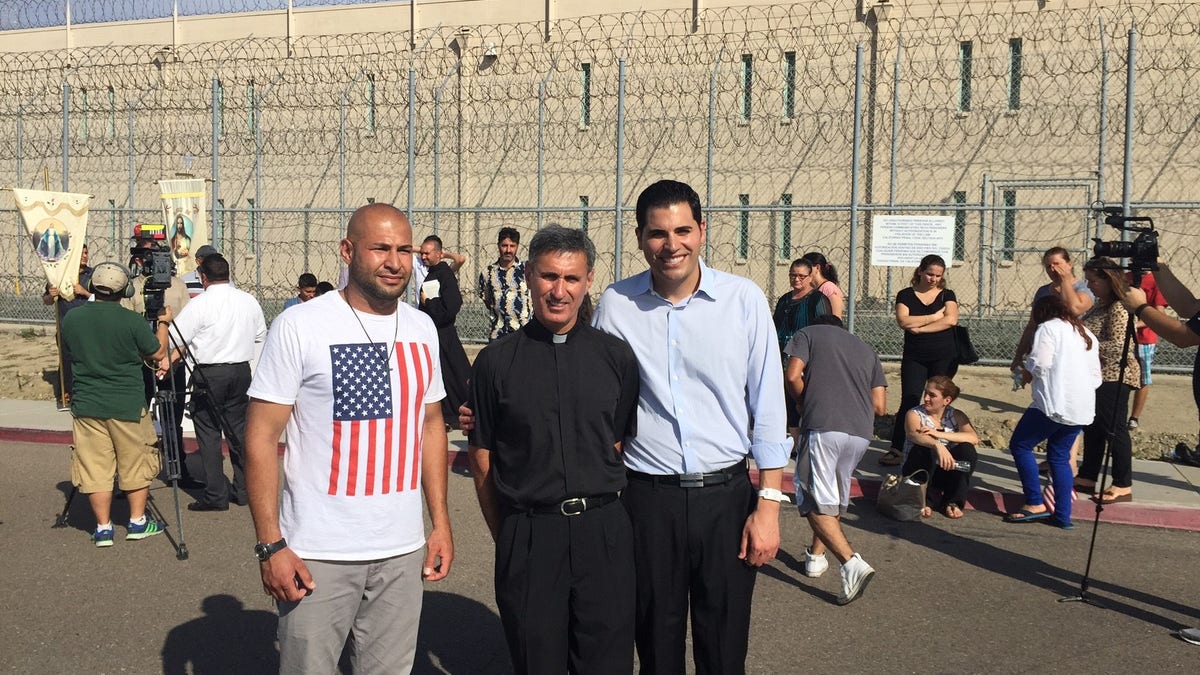
Father Noel with Mark Arabo from the Minority Humanitarian Foundation
The question is one which is widely debated within the U.S diaspora. But in the view of Father Noel, an Iraqi Christian priest in San Diego, Calif. and an ambassador for the Minority Humanitarian Foundation, which endeavors to support Christians leaving Iraq, his brethren have left with next to choice but to leave.
“It is living hell for Christians in Iraq. For those displaced, the only thing keeping them alive is their faith. Those at the shelters say they are simply awaiting death,” he told Fox News. “Many are without vital supplies and necessities. Most are at risk of disease. This Easter, there will be no celebration for many Christians in Iraq.”
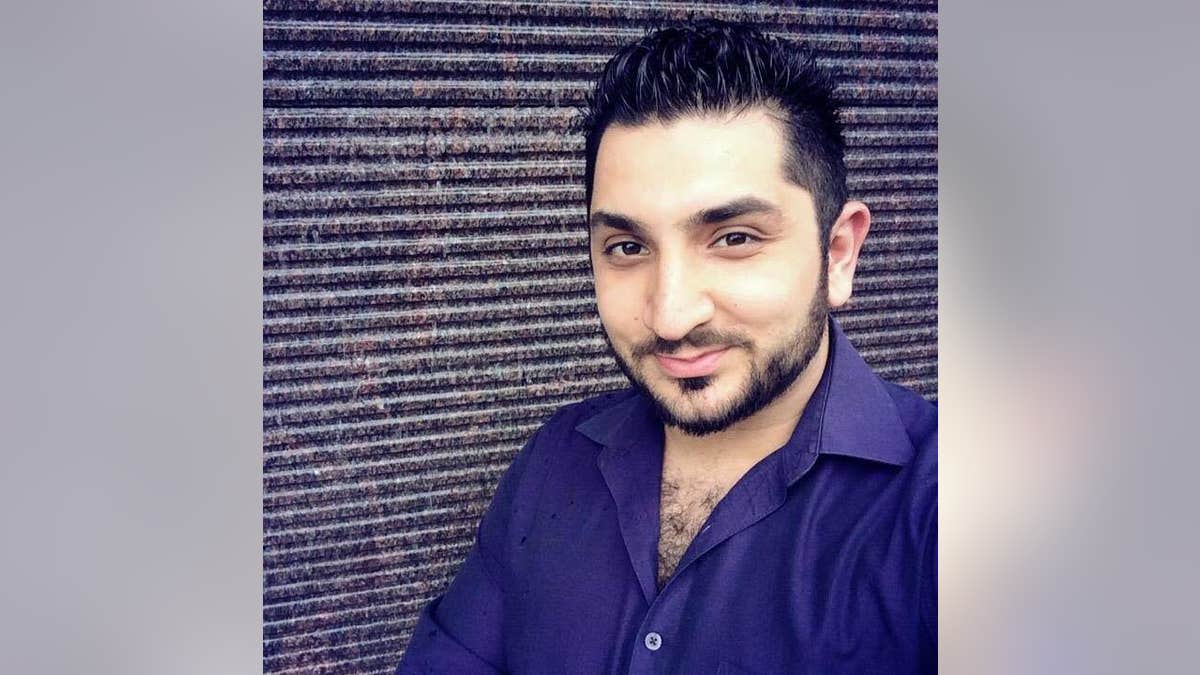
Steven Nabil, Assyrian Christian from Iraq
Steven Nabil, an Assyrian Christian who can still speak in Jesus’s language of Aramaic, concurred that although the future is bleak, hope is not lost.
“The Christians of Iraq and the Middle East have faced some of the harshest genocides by numerous adversaries through history,” he said. “But they have carried the cross with pride and pain.”
Nabil, 28, was raised in the oil-rich northern Iraqi city of Kirkuk and noted that it was not uncommon to hear school teachers telling Muslim children that “Christian students are not as close to God as they are.” As a human rights activist, he still visits his homeland to help those in need and vowed that he never takes for granted his U.S. life.
“I enjoy that my ID does not state my religion,” Nabil quipped. “America is the land of opportunity.”
Last year, then-Secretary of State John Kerry officially declared that Christians in Iraq and its neighbor Syria were the victims of an ISIS-perpetrated genocide. But the Christian minority in Syria – where Saint Paul converted on a road to Damascus – is facing the wrath from more than just ISIS.
The country is heading into its seventh year of a bloody civil war that has claimed the lives of hundreds of thousands and driven a wedge of sectarianism through the previously cohesive country.
However, Christians from Syria often differ about the reasons behind their community’s decline. Some view President Bashar Assad as iron-fisted but a protector of minorities against the rise of revolutionaries, insurgency and Islamism. Others point to him as the very reason Christians are dying and disappearing – especially as the government has been heavily backed in the war by the Shia-aligned Iran and Lebanon’s Hezbollah.
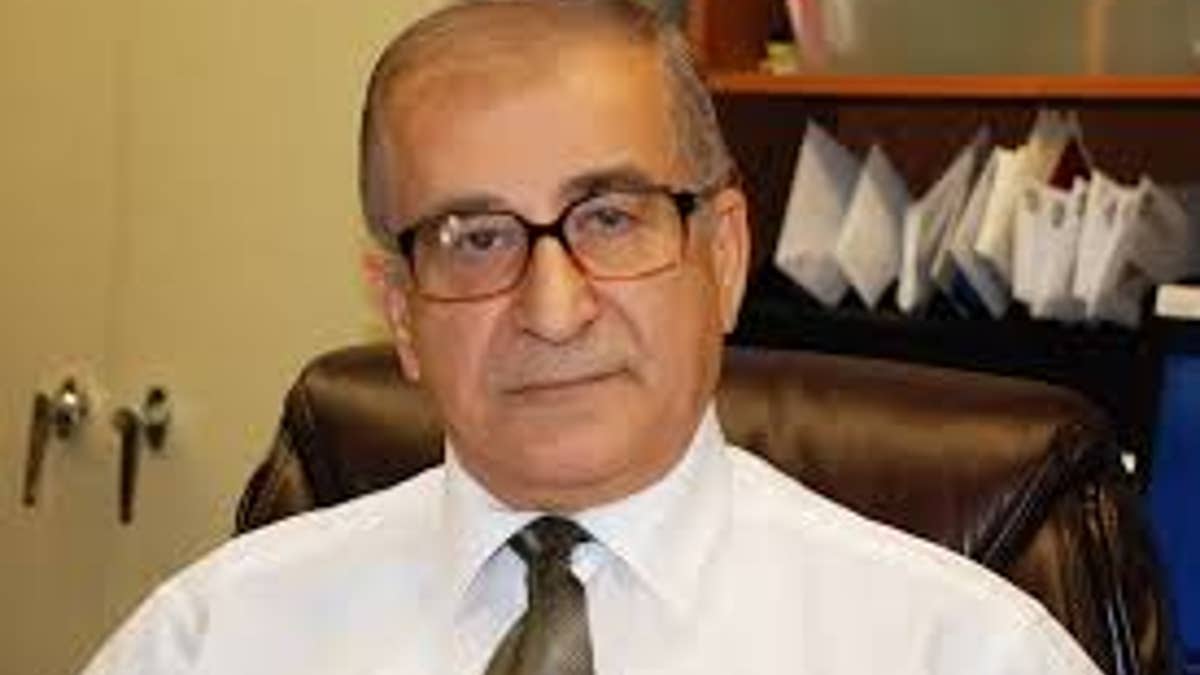
Bahnan Yamin, Christian from Syria
“I don’t even have the privilege of visiting now, less go back and live there,” lamented Abdullah Aroush, who grew up in a tiny Christian town called Zaidal and blames the Assad regime for the decline of Christianity in his mothership. “Life in the U.S. is full of hurdles, but what I mostly cherish is my freedom. You’ll never know how special to have your freedom until you’re stripped of it.”
An exiled life is almost always painful, especially when all one can do is watch from afar as one’s country and religion is torn apart. Nonetheless, Bahnan Yamin, a Christian who hails from the war-ravaged Syrian city of Aleppo – a city that pre-2011 had a bustling Christian community of more than 250,000 but now only one eighth of that – is hopeful that Christians won’t be wiped away so long as war and oppression ends soon.
“I was a teacher in the Islamic district of Aleppo and never felt anything other than respect from my students and their parents, even though they knew I was Christian,” he reminisced. “It is the regime that puts citizen lives in danger, including Christians. We just want a Syria that respects the human rights of all its citizens, all religions.”
